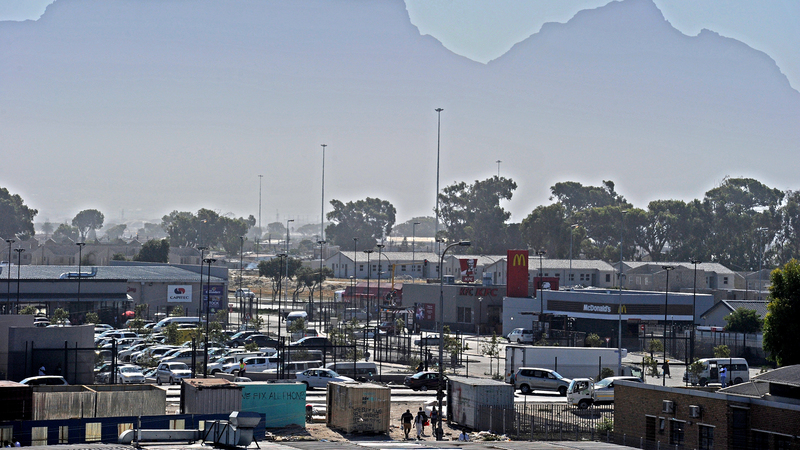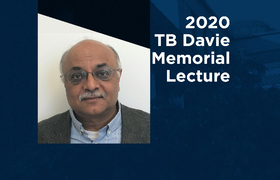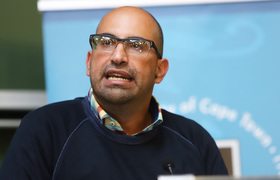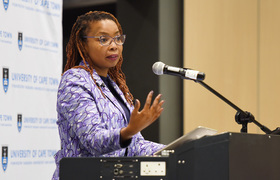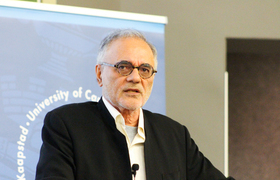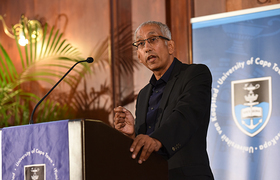‘Economic inequality begets academic inequality’
06 August 2020 | Story Niémah Davids. Photo Lerato Maduna. Read time 5 min.“Since the underlying forces of our time are geared towards rising inequality, policy has to be targeted purposively to addressing and countering these forces to enhance positive freedom, including academic freedom in the positive sense.”
This was the overarching message delivered by Professor Ravi Kanbur during the virtual TB Davie Memorial Lecture, which took place on Wednesday, 5 August. Kanbur is a professor of economics at Cornell University in the United States.
He delivered the keynote address during the annual lecture organised by the University of Cape Town’s (UCT) Academic Freedom Committee. His talk explored the “implications of rising economic inequality for academic freedom”.
The TB Davie Memorial Lecture, currently in its 61st year, was introduced by UCT students in honour of Thomas Benjamin Davie, a former UCT vice-chancellor and defender of the principles of academic freedom, who passed away in 1955.
“The term ‘academic freedom’ invokes controversies on freedom of speech, de-platforming and cancel culture. These are important debates, but they are not the focus of this talk,” Kanbur said.
“My focus will be on the role of economic resources in determining opportunities in academic education and research. Freedom in the positive sense.”
Economic inequality
As he explored economic inequality, Kanbur developed “three broad propositions”.
He argued that economic inequality “begets” academic inequality, which in turn sustains economic inequality; economic inequality also “curtails” positive freedom and positive academic inequality. Therefore, he told the audience, to “enhance” academic freedom, “policy should target general economic inequality as much as specific academic inequality”.
“One way of marrying the traditional focus on inequality across individuals with the salience of groups is to decompose overall inequality among individuals.”
He described economic inequality as a “key feature” among groups across most global societies. These groups, he added, are defined by gender, race, ethnicity, class, religion and even language.
“One way of marrying the traditional focus on inequality across individuals with the salience of groups is to decompose overall inequality among individuals into two components – that accounted for by inequality within groups and that accounted for by inequality between groups,” he said.
Kanbur then probed the question: Are global citizens living in an age of inequality?
“One would think that the answer has to be yes.”
In contrast, he said, while inequality continues to increase in some countries, it has stabilised and declined in others.
“Inequality is not rising everywhere, nor in the world as a whole. But there is, indeed, a sense in which we are living in an age of rising inequality.”
Academic inequality
Encouragingly, measures of education have improved in the world over past 50 years, Kanbur said. However, there is “widespread evidence” that students’ educational achievements with regard to the level and quality of education are “indeed well correlated” with their households’ economic resources.
The inequalities in education, and in higher education specifically, reflect economic inequality, but also “propagate it”. He said this was particularly true in the era of “skills biased” technical change, where the rates of return for each year of education have increased dramatically, more so at the higher education level. And the overall effect, he added, is that inequalities in higher education are “one of the forces making for rising inequality”.
“Academic inequality is thus part and parcel of economic inequality, as cause and consequence.”
“The fundamental forces of technical change, displacing basic labour in favour of educated labour and capital, are strong and strengthening,” he said.
“Academic inequality is thus part and parcel of economic inequality, as cause and consequence.”
Policy is the answer
According to Kanbur, the inequality of economic resources shapes opportunities in education.
“This then leads to a major policy question,” he said.
“If the household economic resources determine access to and performance in the academic sector, and public resources devoted to the academic sector also determine access to and performance within the academic sector, which should be targeted if the objective is to equalise academic opportunity and enhance academic freedom and equality of academic freedom?”
Policy directed towards academic inequality is the “obvious answer”. He said general policies geared towards addressing economic inequality are an “important complement” and can be quite “powerful”.
“Economic inequality, which is a determinant of academic inequality, is in turn a determinant of positive academic freedom – and positive freedom more generally.
“Policy has to be targeted purposively to addressing and countering these forces.”
 This work is licensed under a Creative Commons Attribution-NoDerivatives 4.0 International License.
This work is licensed under a Creative Commons Attribution-NoDerivatives 4.0 International License.
Please view the republishing articles page for more information.


